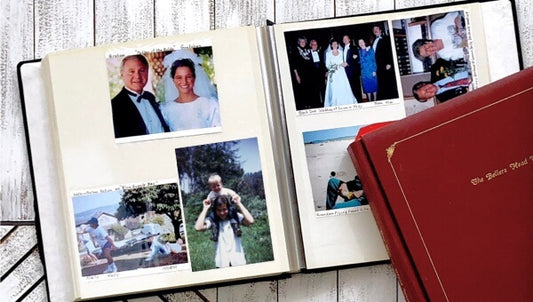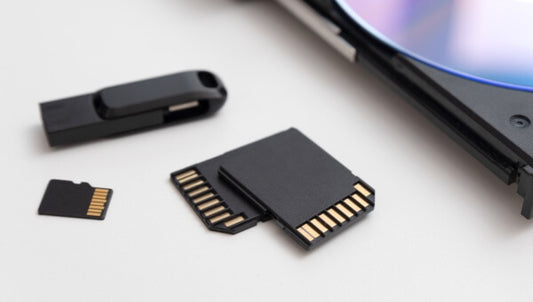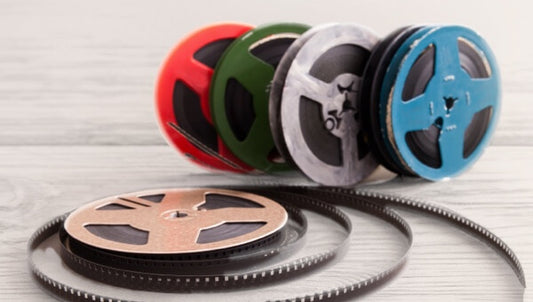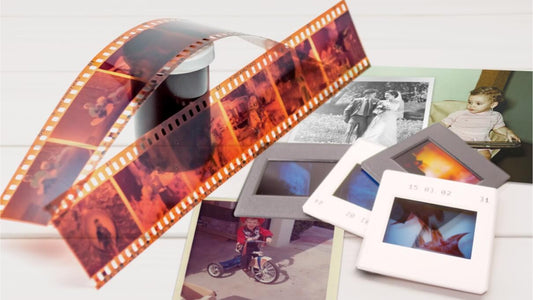Many families have boxes, closets, and shelves full of old VHS tapes that contain memories, movies, and home videos. Each tape contains over 1,000 feet of tape reel, tons of plastic, and chemicals that could potentially harm the environment. That’s why it’s important to recycle VHS tapes responsibly so they never end up in a landfill.
However, before recycling, it’s crucial to digitize your precious memories so that your home videos are preserved for the future. Capture has already helped over 12 million families safely preserve their memories, and we can do the same for you. As part of our environmental commitment, we’ve created this easy-to-follow guide to explain how, where, and why to recycle VHS tapes, including free and local options near you.
Table of Contents
How to Know When to Get Rid of VHS Tapes
VHS tapes were many families' go-to analog format for home movies, but they have become obsolete over the last 20 years. That doesn’t mean you have to get rid of them, but there are some reasons that it might be time to go completely digital.
Here are a few signs it might be time to recycle or digitize your VHS tapes:
- VHS tapes simply take up a lot of space that could be used for something else
- You no longer own or use a VCR and instead use digital formats, DVDs, cell phones, cloud storage, and streaming services.
- The tapes show discoloration, lines, or skips due to age.
Because VHS tapes degrade over time, waiting too long may result in total data loss. Once you’ve ensured your videos are safe in a digital format, you can explore ways to recycle VHS tapes near you without harming the planet.

Can VHS Tapes Be Recycled?
VHS tapes can definitely be recycled, but there are some challenges and obstacles that you may encounter when deciding how to recycle or reuse them.
The outside casing of VHS tapes is made from polypropylene plastic, but the tape inside is made out of a different type of plastic. Because of this, the recycling programs may have to divide up the portions for efficient recycling.
The magnetic tape inside the VHS that stores the data isn’t usually recyclable and must be removed before the casing can be recycled properly. The Mylar tape is made from stretched polyethylene terephthalate. It may also be coated in other toxic chemicals like chromium, polyester urethane, and magnetic oxide that allow the tape to hold a magnetic signal and store your memories.
Generally, these chemicals aren’t toxic in small amounts, but when you and millions of other families want to recycle VHS tapes, it poses a concern for recycling services and the environment. Magnetic tape and cassette casing can also collect mold and mildew that could pose a health or safety hazard to employees at recycling centers.
Because of these challenges, it can be hard to find “where to recycle VHS tapes near me” because many municipal recycling programs simply don’t have the resources to do so effectively. However, there are other options including dedicated electronics recycling facilities that accept VHS tapes or choosing to reuse, repurpose, or donate the old VHS tapes instead.
Why Should You Recycle VHS Tapes?
Whether you have old Disney videotapes or priceless home videos, it’s important to recycle VHS tapes when you get rid of them. Each standard VHS tape contains over 1,400 feet of Mylar tape that can release harmful substances if discarded improperly. Here’s why recycling is essential:
- Prevents toxic chemicals from entering soil and water
- Reduces landfill waste and plastic pollution
- Minimizes microplastics, which can take 100+ years to decompose
- Supports environmental sustainability by reducing greenhouse gases
Over 8 million tons of plastic enter the ocean each year, killing hundreds of thousands of marine animals. Recycling old VHS tapes, audio cassettes, and similar e-waste helps protect these ecosystems.

How to Recycle VHS Tapes
You can’t place VHS tapes in curbside recycling bins. If you’re wondering how to dispose of VHS tapes responsibly, here are the best methods:
Local Options
- Check if your city’s household hazardous waste program accepts videotapes.
- Visit e-waste collection centers that handle small electronics.
- Contact local libraries or community centers to ask about recycling or reuse programs.
Mail-in and Nationwide Programs
- GreenDisk: Offers Technotrash boxes for videotapes, disks, ink cartridges, and more (paid service).
- TerraCycle: Provides specialty recycling drop-offs across the U.S.
- Best Buy: Some stores accept VHS tapes through their electronics recycling program.
Free or Creative Alternatives
- Donate VHS tapes to thrift stores, schools, or museums.
- Sell or give them away via Craigslist, FreeCycle, or Facebook Marketplace.
- Repurpose them for art projects, retro décor, or teaching materials.
- Contact local reuse centers that support creative upcycling initiatives.
Pro tip: Many search for “where to recycle VHS tapes near me free,” and donation or FreeCycle programs are your best no-cost options.
How to Prepare VHS Tapes for Recycling
Before you drop off or mail in your tapes, take these steps:
- Check the recycling requirements. Ask if your local center only accepts the plastic casing.
- Remove the Mylar tape if necessary (cut and separate it before recycling the shell).
- Erase private data using a degausser or strong magnet to wipe the tape.
- Ensure your memories are preserved: once erased or recycled, the footage is gone for good.

Preserve Your VHS Memories Before Recycling
Before saying goodbye to your tapes, make sure the moments they hold are safe.
DIY options include:
- Using a VCR-to-digital converter (requires real-time playback)
- Creating DVDs using a combo DVD/VCR recorder
Professional option:
Choose Capture’s video conversion service for a secure, high-quality transfer. You’ll receive downloadable files, DVDs, or USB flash drives, all tracked through Capture’s state-of-the-art security system.
Recycling VHS Tapes the Right Way
Analog videotapes contain plastic, magnetic tape, and potentially harmful chemicals that can harm the environment. That’s why it’s important to recycle VHS tapes to reduce waste and promote sustainable practices. However, you will have to find an e-waste recycling service that accepts VHS tapes locally or online with services like GreenDisk. Alternatively, you can donate them, sell them, reuse them, or give them away.
Whatever you decide to do with your old VHS tapes, make sure that you preserve your memories first. Not only does it save you space, but it also makes it much easier to share home movies over social media or email and preserves them as digital copies for future generations to enjoy.











